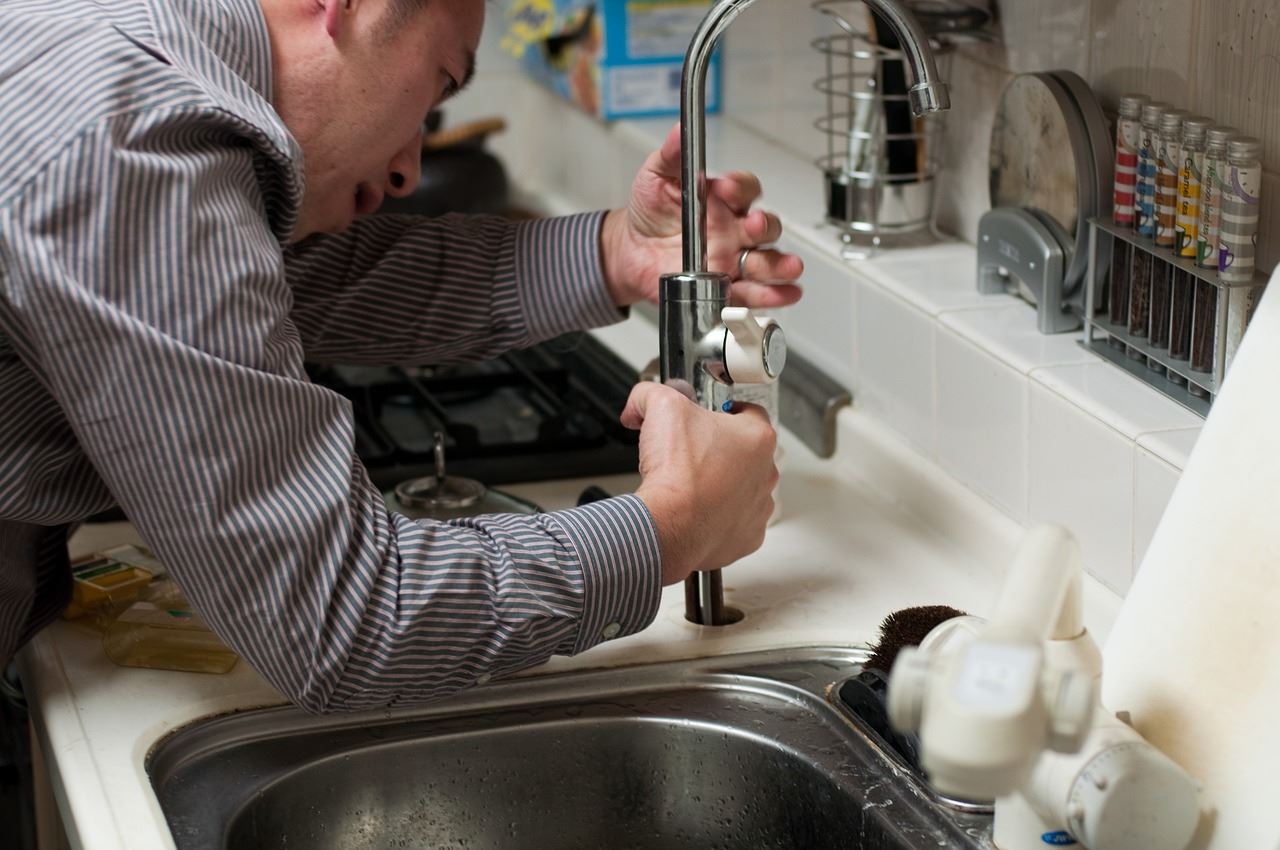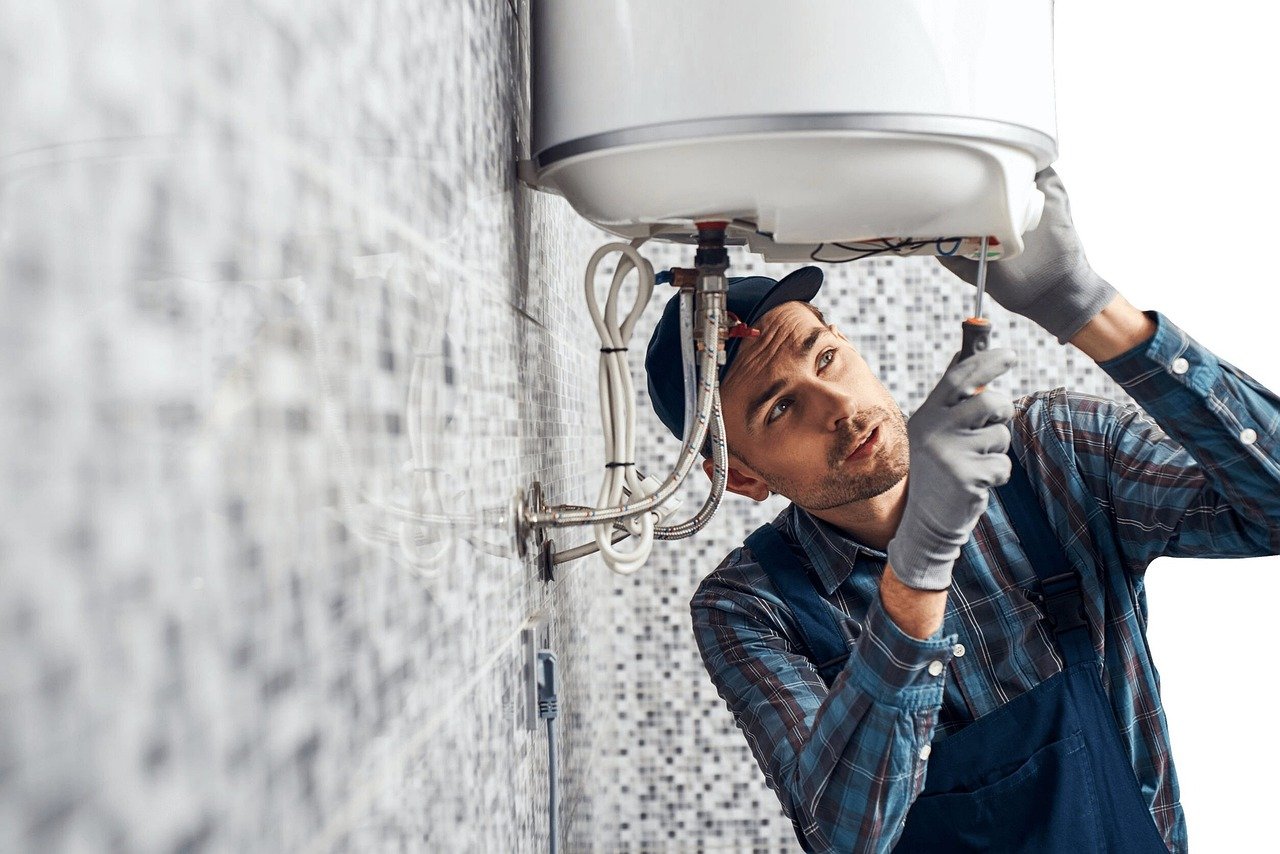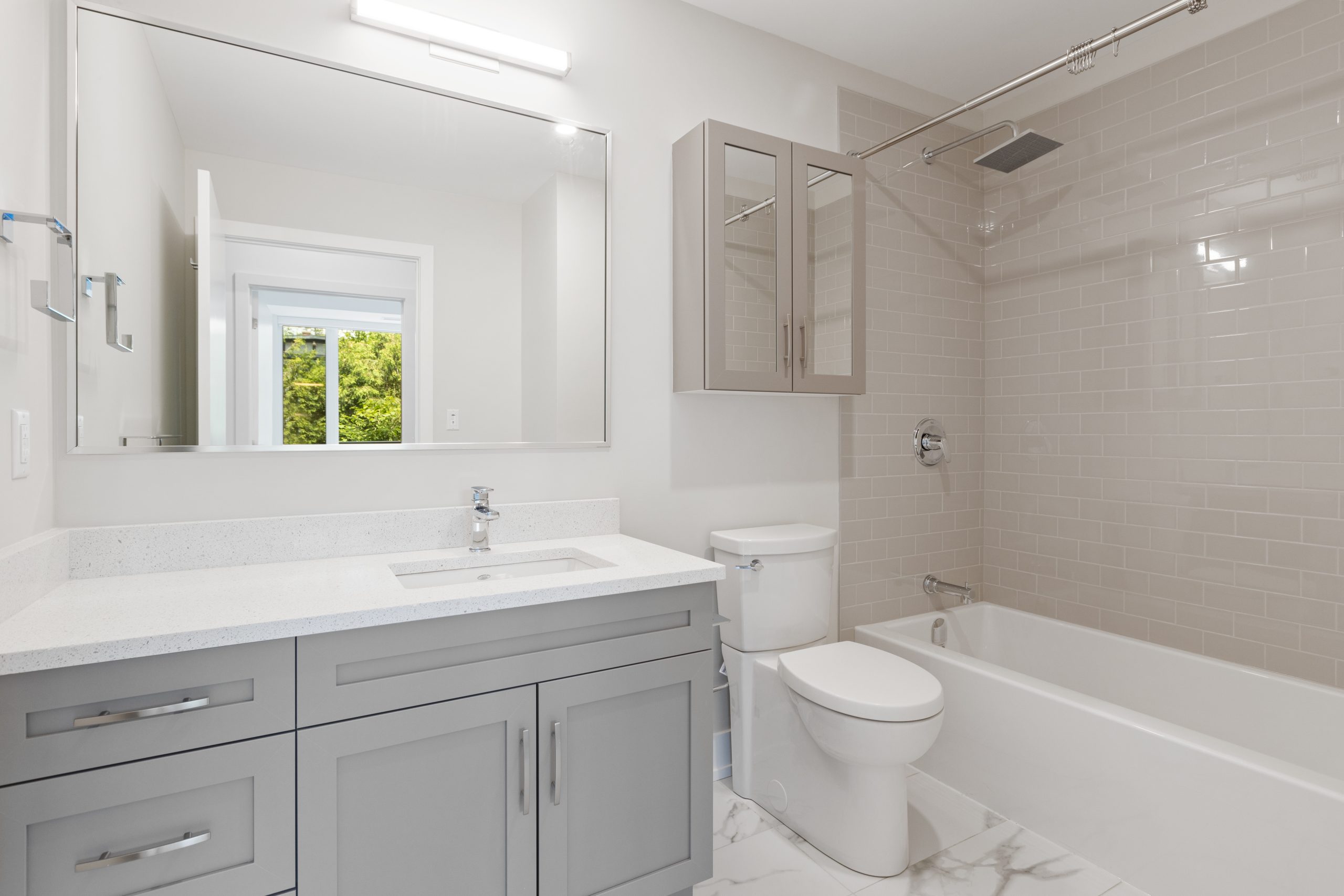Embarking on do-it-yourself plumbing projects can be empowering, saving you both time and money. However, the allure of handling plumbing issues solo comes with its own set of challenges, and without the proper knowledge, it’s easy to make mistakes that could lead to costly repairs. At Service by Scott, a family-owned and operated full-service plumbing and maintenance company in Woodville, Texas, with over 30 years of experience, we’ve witnessed the aftermath of common DIY plumbing mistakes.
In this comprehensive guide, we’ll walk you through the pitfalls to avoid, providing insights to ensure your DIY plumbing ventures are successful and headache-free. Whether you’re a seasoned DIY enthusiast or a first-timer, understanding these potential issues will help you tackle plumbing projects with confidence. From routine maintenance oversights to the dangers of overusing chemical drain cleaners, we’ll cover it all. Let’s dive in and explore the essential tips to sidestep common pitfalls and keep your plumbing in optimal condition.

Overlooking Routine Maintenance
Routine maintenance is the unsung hero of a healthy plumbing system. Many homeowners underestimate the significance of regular checks and inspections, inadvertently setting the stage for potential issues. Here’s a closer look at common pitfalls associated with overlooking routine maintenance:
Neglecting Regular Checks
The plumbing system, much like any other aspect of your home, requires regular attention. Neglecting routine checks can result in the gradual accumulation of issues, transforming small problems into significant headaches. From leaky faucets to hidden pipe damage, routine inspections are your first line of defense.
Ignoring Small Leaks
A seemingly inconspicuous drip may not set off immediate alarms, but ignoring small leaks can lead to more extensive water damage over time. Regularly inspecting faucets, pipes, and connections for any signs of moisture can save you from costly repairs down the line.
Ignorance of Potential Issues
Routine maintenance isn’t just about fixing what’s visibly broken—it’s also about identifying potential issues before they escalate. Ignorance of subtle warning signs, such as unusual sounds or slow drainage, can result in more complex and expensive repairs in the future.
The Role of Preventive Measures
Taking a proactive approach to routine maintenance involves implementing preventive measures. This includes tasks like insulating exposed pipes during colder months to prevent freezing, clearing debris from gutters that can contribute to water damage, and checking for water pressure irregularities. Investing time in preventive maintenance can significantly extend the life of your plumbing system.
Forgetting to Turn Off the Main Water Valve
One of the fundamental aspects of any plumbing project is ensuring that water flow is under control. Forgetting to turn off the main water valve before starting any work can turn a manageable task into a watery disaster. Let’s explore the key points associated with this crucial step:
Importance of Shutting Off Water
Before diving into any plumbing repair or installation, it’s imperative to shut off the main water supply. Failing to do so can result in water gushing out uncontrollably, causing potential damage to your home and belongings. Turning off the water is the first and most crucial step to a successful and mess-free plumbing project.
Identifying the Main Valve
Locating the main water valve might seem daunting, but it’s a skill every homeowner should possess. Typically found near the water meter, the main valve controls the water flow to your entire house. Taking the time to identify and familiarize yourself with its location ensures you can act swiftly in case of an emergency or when undertaking plumbing tasks.
Avoiding Unnecessary Mess
Turning off the main water valve isn’t just about preventing damage; it’s also about avoiding unnecessary mess. A controlled environment allows you to work efficiently and reduces the cleanup efforts afterward. Whether it’s fixing a leaky pipe or installing a new fixture, shutting off the water is a precautionary measure that pays off in the long run.
Preventing Water Damage
Water damage is a homeowner’s nightmare, and a simple oversight in turning off the main valve can turn that nightmare into reality. By taking the time to shut off the water before starting any plumbing job, you’re not only protecting your property but also ensuring a smoother and more successful DIY experience.
Overusing Chemical Drain Cleaners
Chemical drain cleaners might seem like a quick fix for clogged drains, but their misuse can lead to more harm than good. Let’s delve into the common mistakes associated with overusing chemical drain cleaners and why a cautious approach is essential:
The Temporary Fix Illusion
Chemical drain cleaners often provide a temporary solution to a persistent problem. While they may clear a clog initially, they can fail to address the root cause, leading to recurring issues. Relying on these cleaners without understanding the underlying plumbing problem can result in continuous frustrations.
Harsh Effects on Pipes
Chemical drain cleaners contain potent, corrosive substances designed to break down clogs. However, these harsh chemicals can also damage your pipes over time. Continuous use may weaken the pipe material, causing leaks or even necessitating costly replacements. It’s crucial to balance the convenience of chemical cleaners with the potential long-term damage they can inflict.
Environmental Impact
Beyond their impact on pipes, chemical drain cleaners pose environmental concerns. The substances used in these cleaners can be harmful when released into the water supply. Considering eco-friendly alternatives or opting for professional drain cleaning services helps minimize your ecological footprint while maintaining a functional plumbing system.
Safer Alternatives
Choosing safer alternatives to chemical drain cleaners is a prudent choice for both your plumbing and the environment. Mechanical methods like plungers or drain snakes can effectively clear many clogs without resorting to harsh chemicals. Additionally, preventive measures such as regular drain maintenance can reduce the likelihood of clogs, eliminating the need for chemical interventions.
Overusing chemical drain cleaners can lead to a cycle of temporary fixes and potential long-term damage. By adopting a more informed and cautious approach, you can address clogs effectively while preserving the integrity of your plumbing system.

Starting A Job Without The Proper Tools
Embarking on a plumbing project without the right tools is akin to setting sail without a compass—frustrating, directionless, and often unsuccessful. Here’s a closer look at the pitfalls associated with starting a job without the proper tools:
Importance of the Right Tools
Plumbing tasks require specific tools to ensure precision, efficiency, and safety. Attempting a job with inadequate or makeshift tools can lead to subpar results, additional complications, and potential safety hazards. Understanding the importance of having the right tools sets the foundation for a successful DIY plumbing experience.
Basic Plumbing Toolkit
Building a basic plumbing toolkit is an investment in the success of your projects. Essential tools include a pipe wrench, adjustable pliers, pipe cutter, Teflon tape, a plunger, and a pipe wrench. Familiarizing yourself with these tools and their uses equips you to handle a wide range of plumbing tasks confidently.
Avoiding Makeshift Solutions
In the world of plumbing, improvisation often leads to more significant issues. Using makeshift tools or attempting to substitute the proper equipment can damage components, compromise the integrity of your plumbing system, and result in costly repairs. It’s crucial to resist the temptation to cut corners and invest in the right tools for the job.
Investing in Quality Tools
While it’s understandable to seek cost-effective solutions, compromising on tool quality can have long-term consequences. Quality tools not only enhance the efficiency of your work but also contribute to the longevity of your plumbing system. Investing in durable tools may initially seem more expensive, but it pays off in the form of reliable and successful DIY plumbing endeavors.
Starting a plumbing job without the proper tools is a recipe for frustration and potential disaster. By prioritizing the acquisition of a well-rounded toolkit and understanding each tool’s purpose, you’ll set yourself up for success in tackling various plumbing tasks with confidence and efficiency.
Over-Tightening Plumbing Connections
Precision is paramount in plumbing, particularly when tightening connections. Over-tightening, a common mistake, can trigger a chain of issues. Let’s explore the critical aspects more succinctly:
Understanding Proper Torque
Proper torque is essential when tightening plumbing connections. Over-tightening, driven by the misconception that tighter is better, risks damaging fittings, pipes, and components. Recognizing the appropriate torque for different connections is key to preventing issues.
Risks of Over-Tightening
Excessive force can lead to problems, from minor leaks to significant damage. Over-tightening can distort or crack fittings, causing hidden leaks and making future adjustments challenging. This practice may necessitate costly replacements due to compromised threads on pipes.
Potential Damage to Fittings
Fittings, designed for secure and watertight connections, can be compromised by over-tightening. Deformation or cracking due to excessive force undermines their effectiveness, leading to leaks. Maintaining the structural integrity of your plumbing system requires a balanced approach to tightening.
Seeking Professional Advice
Certain plumbing aspects demand precision and expertise. If uncertain about the correct torque, seeking professional advice is wise. Plumbers, like those at Service by Scott, possess the experience to tighten connections appropriately, ensuring the reliability and longevity of your plumbing system.
Understanding the delicate balance of torque in plumbing connections is essential for successful DIY projects. By avoiding the temptation to over-tighten, you safeguard your plumbing system against leaks, damage, and the need for premature repairs.

Attempting a DIY Plumbing Job Without All the Needed Parts
Embarking on a DIY plumbing project is commendable, but success often hinges on meticulous preparation. Here’s a closer look at potential pitfalls associated with attempting a plumbing job without all the necessary parts:
Thorough Preparation Matters
Underestimating the significance of comprehensive preparation can lead to frustration and stalled projects. Before starting a DIY plumbing task, ensure you have all the required parts on hand to prevent interruptions and ensure smooth progression.
Compromises on Quality
Attempting a plumbing job without all the needed parts may tempt improvisation or the use of subpar alternatives, compromising the quality and effectiveness of your repairs or installations. Opting for genuine, high-quality parts ensures the longevity and reliability of your plumbing system.
Avoid Unnecessary Trips
Realizing mid-project that you lack essential parts can result in multiple trips to the hardware store, elongating the task and introducing unnecessary inconvenience. A thorough inventory of required parts beforehand minimizes disruptions and streamlines the completion of your plumbing project.
The Value of a Complete Kit
For more extensive plumbing projects, assembling a complete kit tailored to your task’s specific requirements eliminates the need for last-minute runs to the store. Having everything at your fingertips enhances efficiency and ensures that your DIY plumbing job proceeds without unnecessary delays.
Taking On Jobs Best Left To A Professional
While the allure of DIY projects is undeniable, there are instances in the realm of plumbing where expertise is paramount. Here’s an exploration of the potential pitfalls associated with taking on plumbing jobs best left to a professional:
Knowing Your Limits
Recognizing your skill level and limitations is the first step in successful DIY plumbing. Complex tasks, such as intricate repairs or installations, may require the expertise of a professional. Understanding when a job surpasses your capabilities ensures both the safety of your home and the effectiveness of the plumbing work.
Recognizing Complex Issues
Certain plumbing issues go beyond the scope of basic repairs. Identifying the complexity of a problem is essential to determine whether it’s a task suitable for a DIY enthusiast or one that demands the skills of a seasoned professional. Ignoring the intricacy of an issue can exacerbate the problem and lead to more extensive damage.
When to Call Service by Scott
Service by Scott, with over 30 years of experience, is equipped to handle plumbing challenges of any scale. Recognizing when a plumbing job is best left to the professionals ensures the task is completed efficiently, effectively, and without unnecessary complications. Trusting experts like Service by Scott guarantees a reliable and long-lasting solution to your plumbing needs.
Cost-Effective Decision-Making
While DIY projects can save money, attempting complex plumbing tasks without the necessary expertise can result in costly mistakes. Evaluating the cost-effectiveness of a DIY approach versus professional services is crucial. In many cases, investing in a professional ensures a job well done, ultimately saving you time, money, and potential headaches.
Taking on plumbing tasks best left to a professional requires a discerning approach. By acknowledging your limits, recognizing the complexity of issues, and understanding when to call in experts like Service by Scott, you ensure the longevity and efficiency of your plumbing system while making prudent cost-effective decisions.
Conclusion
In the realm of DIY plumbing, knowledge is power, and foresight is the key to success. We’ve explored common pitfalls, from overlooking routine maintenance to attempting tasks best left to a professional. As you navigate the intricacies of your plumbing projects, remember these fundamental principles.
Routine maintenance is the unsung hero, preventing small issues from snowballing into significant problems. Turning off the main water valve is your first line of defense against watery disasters. Choose alternatives wisely, especially when it comes to chemical drain cleaners, and avoid over-tightening connections, as precision trumps force.
Equipping yourself with the right tools and ensuring you have all the necessary parts are foundational steps for DIY plumbing success. However, recognizing when a task exceeds your expertise and calling in professionals like Service by Scott is a prudent decision. Their years of experience, coupled with a commitment to excellence, ensure reliable and efficient plumbing solutions.
As you embark on your plumbing ventures, take these insights to heart. Success lies not only in tackling projects with confidence but also in knowing when to seek professional assistance. For all your plumbing needs, big or small, contact Service by Scott. Let their expertise guide you to a plumbing system that’s not only functional but also built to withstand the test of time. Your home deserves nothing less than the best, and Service by Scott is here to deliver.
FAQs
Why is over-tightening plumbing connections a problem?
Over-tightening plumbing connections may seem like a way to ensure a secure seal, but it can lead to significant issues. Applying excessive force can distort fittings, damage pipes, and compromise the integrity of the plumbing system. It’s crucial to understand and apply the proper torque for different connections to prevent leaks and long-term damage.
How do I locate the main water valve in my home?
The main water valve is typically located near the water meter. It’s crucial to familiarize yourself with its location before starting any plumbing projects. If uncertain, seek assistance or guidance from a professional plumber.
What tools should every DIY plumber have in their toolkit?
A basic plumbing toolkit should include a pipe wrench, adjustable pliers, a pipe cutter, Teflon tape, and a plunger. Investing in quality tools ensures the efficiency and success of your DIY plumbing projects.
When should I consider calling a professional plumber instead of attempting a DIY fix?
If a plumbing task exceeds your skill level, involves complex issues, or requires specialized knowledge, it’s best to call a professional plumber. Attempting tasks beyond your expertise can lead to costly mistakes and further damage.
Is routine plumbing maintenance necessary even if I don’t notice any issues?
Yes, routine maintenance is crucial to prevent potential issues before they become noticeable. Regular checks can identify small problems early on, saving you from major repairs and ensuring the longevity of your plumbing system.

